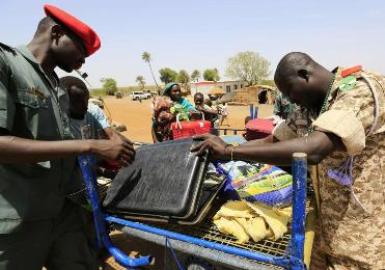Sudan and South Sudan to deploy joint border patrols
January 23, 2017 (JUBA) – South Sudanese government under President Salva Kiir announced on Monday it was longer hosting Sudanese rebels in its territory, disclosing that a joint force will be deployed soon.

“There is no problem anymore with Sudan. The issue of security along the common border has been addressed. There will be a joint monitoring and verification team”, said Tut Kew Gatluak.
In accordance with the 2012 security arrangements agreement the parties committed themselves to deploy the Joint Border Verification and Monitoring Mission (JBVMM) and activate the Safe Demilitarized Border Zone (SDBZ).
Accordingly, the parties deployed the joint units but Juba suspended its participation in November 2011 when the South Sudanese government rejected the administrative and security map presented by the AUHIP.
The proposed map included the disputed 14 mile area in the buffer zone, the Malual Dinka of Northern Bahr el Ghazal and the then State Governor Paul Malong Awan refused the measure as they refuse even to accept Sudan’s claim on the area and its inclusion among the disputed areas.
Unconfirmed reports says Juba and Khartoum discussed the situation of 14 Miles during the joint security discussions but nothing filtered about the agreement reached on this respect.
The presidential aide said the decision of the leadership of the two countries would do the best to promote peace and encourage any group with political grievances to use dialogue.
“South Sudan will never be a launching ground for hostile activities against any nation in the region. We will never be a host to hostile group. Political differences are always resolved through dialogues rather than through the use of violence approach”, he explained.
The two countries, he said, have agreed to not provide arms and training to non-state proxy groups.
(ST)
